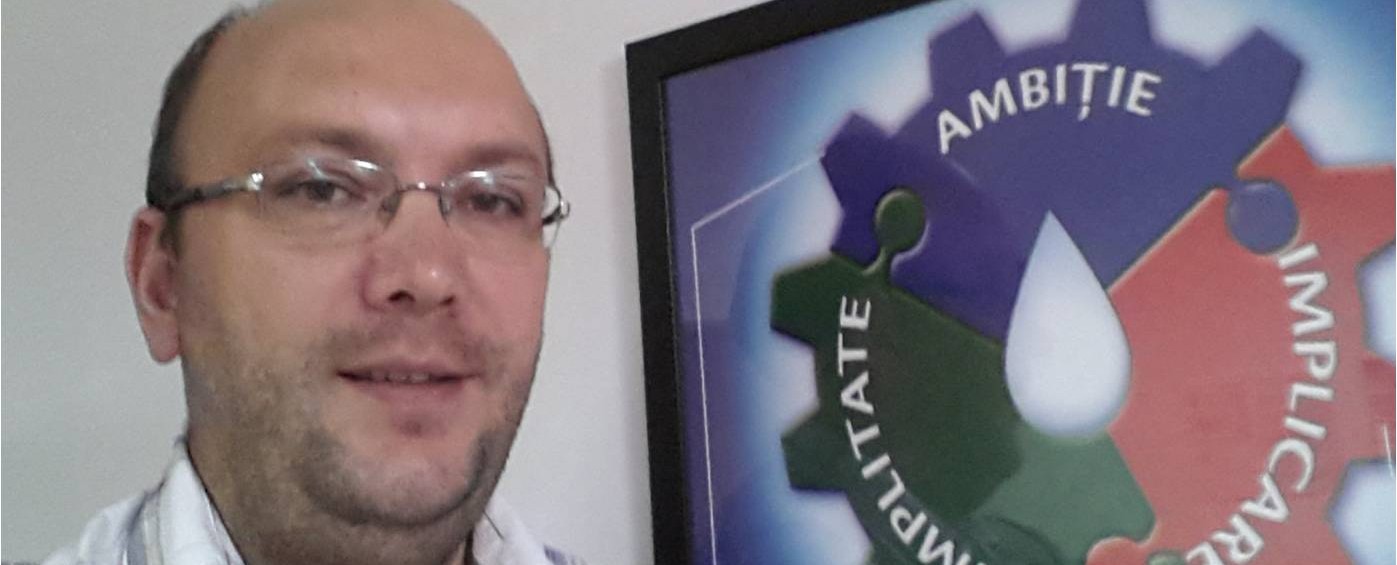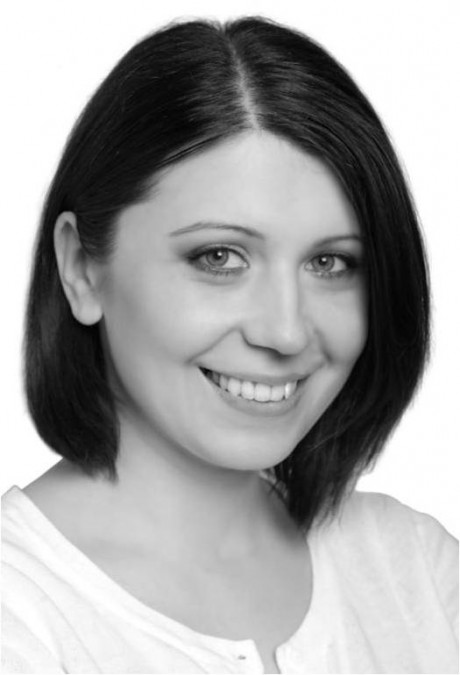Part of our contest consists of interviews with the participant. They must answer all the questions in the 3 sections (Career, ERS and Creative Innovation) in order to demonstrate to the jury that they really are Empowered.Resourceful.Spectacular.
Costel Apetrei, Quality System Management and Food Safety Manager for LaDorna is being interviewed next.
Career
Trainart: What made you want to have a career in this field?
C.P.: My passion for exact sciences, the creativity you need in this field and, last but not least, the pleasure of making products which satisfy others.
Trainart: Which one of you passions would you turn into a business?
C.P.: I have always loved to travel. I think I can turn this into reality by coordinating a tourism agency.
Trainart: How do you measure your own success?
C.P.: Success represents first of all the satisfaction that I am respected by those I collaborate with and that, at the end of any collaboration, we manage to remain friends. I can assert: ”The more I work, the more successful I am.”
Trainart: Who are you beyond your job?
C.P.: An organized, balanced person, a family man, interested in culture, music, travel.
ERS
Trainart: If you had 24 hours to live, how would you spend your day?
C.P.: With my family, of course. I would try to remind my daughter who she is and what she has to do.
Trainart: If you had a message for all humanity, what would it be?
C.P.: Search for your calling! God has given everybody a gift, man’s mastery is to discover and cultivate it.
Trainart: What would you like to do if you knew you couldn’t fail?
C.P.: A drug to cure cancer.
Trainart: What was the most difficult decision you had to take last year? Describe the situation briefly.
C.P.: I don’t think it was a special situation. Basically every decision and its consequences are important. We must be reasonable. Of course there are decisions in life we have to take though the risks are very big. But the benefits can also be worthwhile.
Trainart: Tell us when you last stepped out of your comfort zone.
C.P.: Come to think of it, an eloquent example would be when I was in the university field and I had to be a professor for the first time. Being a professor means to transmit information people can internalize and operate with. I made an effort to command respect in front of my students so that my message could be interesting and motivating.
Trainart: Is there a character from a movie/play you identify yourself with? What are the similarities?
C.P.: With Ibrahim of Parga (1523-1536), the Grand Vizier of the Ottoman Empire during Suleyman (1520-1566). I would like to believe that we share the following things: faith, openness to culture, exceptional abilities in diverse culture fields, love for one’s country, spirit of sacrifice and last but not least faith to the supreme leader. Despite the fact that he was sacrificed because of the sultan’s self-sufficient ambitions, he was still faithful, religious and had common sense in everything he did. It is amazing how efficient “the management system” was then. Everything was decided on the spot with measures which proved to be successful in time. I can say the Kaisen management has been applied since then.
Trainart: If you were in the jury, what would be the reasons for which you would give yourself an award?
C.P.: Because I wholeheartedly love my job and I’m connected to its realities 24/24 and 7/7. Such a pity there are only 24 hours in a day…
Creative Innovation
Trainart: If you could invent a new revolutionary product, what would it be?
C.P.: A drug against congenital diseases in children. Nothing is more heartbreaking that children’s incurable diseases.
Trainart: If you could pass a law people had to obey, what would it be and why?
C.P.: The law of social protection for needy people, but especially for children whose parents are away abroad working and who remain with their relatives, creating major inferiority complexes.
Trainart: If you had a superpower, what would it be and how would you use it?
C.P.: It’s a tough question. I think I would eradicate poverty because there is too much suffering all around: children abandon school, parents are forced to give up their children resorting to desperate solutions such as social centers, being thus deprived of the right to raise them in a civilized manner.
« Back to articles



